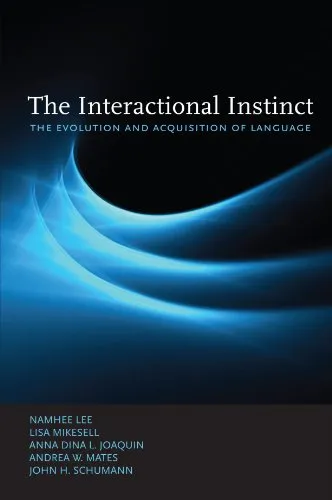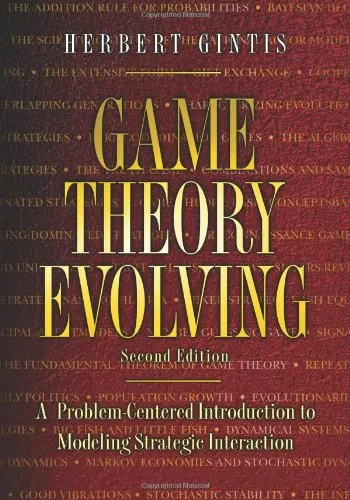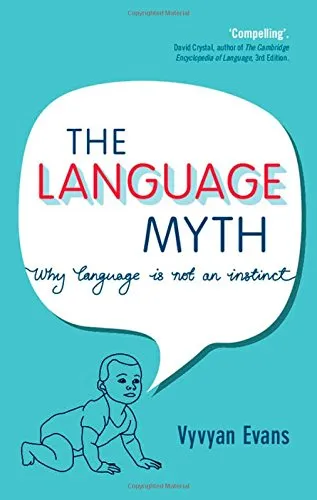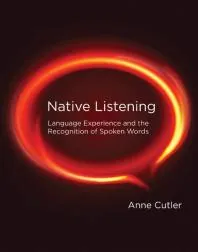The Interactional Instinct: The Evolution and Acquisition of Language
4.5
Reviews from our users

You Can Ask your questions from this book's AI after Login
Each download or ask from book AI costs 2 points. To earn more free points, please visit the Points Guide Page and complete some valuable actions.Related Refrences:
Introduction to "The Interactional Instinct: The Evolution and Acquisition of Language"
"The Interactional Instinct: The Evolution and Acquisition of Language," authored by Namhee Lee, Lisa Mikesell, Anna Dina L. Joaquin, Andrea W. Mates, and John H. Schumann, delves into one of the most intriguing aspects of humanity: language. This book investigates the origins, development, and fundamental role of social interaction in language evolution and learning. It provides a groundbreaking theoretical framework that views language acquisition as rooted innately in human interactional instincts. Written with an interdisciplinary approach, this book bridges the realms of linguistics, psychology, anthropology, and neuroscience to explore how linguistic skills emerge and why they are such an essential aspect of human life.
Detailed Summary of the Book
At its core, "The Interactional Instinct" challenges the common perception that the acquisition of language is solely based on innate cognitive modules or isolated learning processes. Instead, it builds upon the argument that humans are naturally equipped with an instinct to interact socially, and this instinct is what fosters our unique ability to acquire language. The book extensively examines the interplay between cultural, biological, and social factors that have shaped language over evolutionary history.
The authors introduce the concept of the "interactional instinct," which describes the innate motivation humans have to engage in interactions with others. Through these social dynamics, individuals learn the nuances of language, from its basic structure to its complex systems of meaning. The work also draws comparisons between humans and other species, highlighting the unique role that interaction plays in human development as opposed to other communicative systems in nature.
Through empirical studies, real-world examples, and theoretical analyses, this book provides insight into the dynamic relationship between early caregiving, social affiliation, and the acquisition of linguistic abilities. The authors specifically focus on how infants and young children acquire language skills in the context of everyday human bonds and communicative exchanges. Additionally, the book postulates that this intrinsic interactional drive was a necessary precursor for the evolution of complex language systems.
Key Takeaways
- Humans possess an evolutionary instinct for interaction, which plays a pivotal role in the development of language.
- Language cannot be solely explained by cognitive processes; it is inherently tied to human social dynamics and relationships.
- The developmental process of language acquisition is deeply intertwined with parent-child interactions and early social experiences.
- The evolution of human language is distinct from other animal communication systems, primarily due to our reliance on interpersonal bonds and shared meaning.
- Understanding the interactional instinct provides insights into how language deficits may emerge in individuals with atypical developmental trajectories.
Famous Quotes from the Book
"Language does not simply emerge from cognition; it arises from the bond between humans and their desire to connect, share, and belong."
"The interactional instinct is more than a theory; it is the key to understanding why humans are the only species capable of such elaborate linguistic systems."
"Every conversation, every word spoken, is a reflection of the fundamental human need to interact and create shared meaning."
Why This Book Matters
"The Interactional Instinct" is not just a deep exploration of language acquisition—it is also a profound commentary on what makes humans unique. This book matters because it shifts the paradigm in linguistic and social sciences by providing a new way to understand how language comes into being. It underscores the importance of social bonds and interaction in human development, emphasizing the role of relationships over isolated cognitive mechanisms.
Moreover, the book offers valuable implications for education, language therapy, and understanding individuals with language development disorders. By shedding light on the interactional foundation of language, it opens up possibilities for addressing communication challenges in diverse populations. Scholars, educators, and linguists alike will find this work invaluable for its innovative perspectives and interdisciplinary approach.
In an era where communication is central to personal and societal growth, understanding the instinctual roots of language offers a profound insight into humanity's evolutionary journey. "The Interactional Instinct" is a timely reminder of why language continues to form the bedrock of our collective human experience.
Free Direct Download
You Can Download this book after Login
Accessing books through legal platforms and public libraries not only supports the rights of authors and publishers but also contributes to the sustainability of reading culture. Before downloading, please take a moment to consider these options.
Find this book on other platforms:
WorldCat helps you find books in libraries worldwide.
See ratings, reviews, and discussions on Goodreads.
Find and buy rare or used books on AbeBooks.
1369
بازدید4.5
امتیاز0
نظر98%
رضایتReviews:
4.5
Based on 0 users review
Questions & Answers
Ask questions about this book or help others by answering
No questions yet. Be the first to ask!













